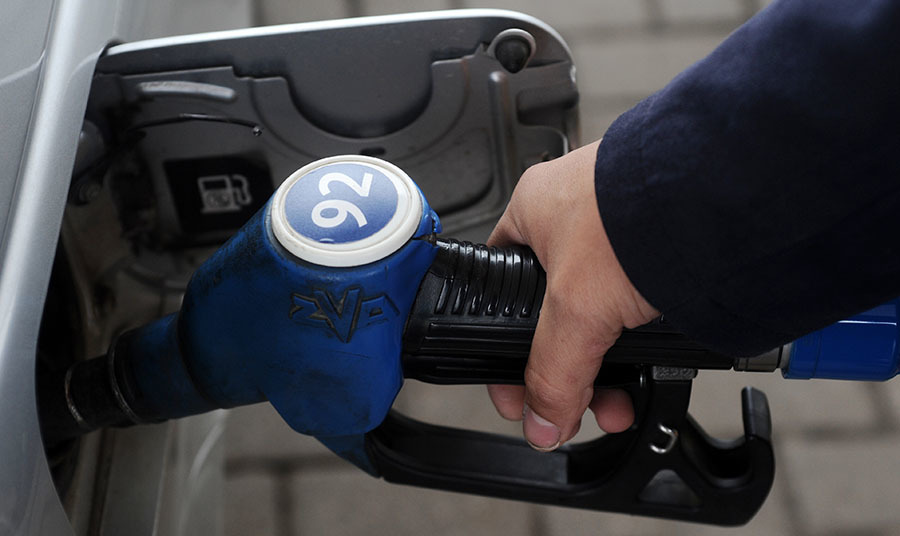Over the week from October 11 to 17, the average retail price of AI-92 gasoline in Russia increased by 0.37% - to 46.19 rubles per liter, and the cost of AI-95 fuel increased by 0.3% - to 49.99 rubles per liter.
At the same time, a liter of diesel fuel rose in price by 0.34%, to 50.86 rubles per liter.
Such data on Wednesday, October 20, was published by Rosstat.
According to the ministry, fuel prices have been rising for the fourth week in a row after a slight decline in early autumn.
The main reason for the observed dynamics was the explosive rise in oil prices on the world market, says Denis Badianov, an analyst at Alfa Capital.
Note that over the past month, the cost of raw materials of the reference grade Brent on the ICE exchange in London increased by more than 13%, and on October 18, quotations briefly rose above $ 86 per barrel.
The last time a similar value could be observed back in October 2018.
“Under the current conditions, it becomes more profitable for suppliers to sell raw materials on foreign sites than on the territory of the country.
Along with the still high demand for fuel, producers do not always manage to fill the storage facilities on time.
This, in turn, affects the retail price, "Badyanov explained in a conversation with RT.
In addition, the increase in the cost of fuel at filling stations may be partly due to a temporary surge in wholesale fuel prices at the end of September.
This point of view in an interview with RT was expressed by a senior analyst at Forex Optimum, Alexander Rozman.
“The dynamics of wholesale prices is reflected in retail prices with a delay of two to three weeks, so gradually that September jump is only now reaching gas stations.
At the same time, fuel consumption in the country may now further increase due to the seasonal acceleration of economic activity.
Therefore, the increased rates of price growth may continue until mid-November, ”says Rozman.
However, a special compensating mechanism still allows restraining the rise in gasoline prices in retail, experts say.
Recall that in 2019, the so-called damper began to work on the Russian fuel market of the country.
Within the framework of this instrument, the state compensates oil companies for lost revenues when supplying fuel to the domestic market.
Thus, if the prices for fuel within the country are lower than export prices, oil workers receive compensation from the budget.
At higher prices on the domestic market, companies, on the other hand, transfer part of their profits to the treasury.
This avoids sudden jumps in the cost of fuel to consumers.
“The tool compensates producers for almost 70% of the difference between the export alternative and the domestic target price.
Therefore, we manage to keep the wholesale price close to the current levels, while the retail price is now growing at a rate close to inflation.
We expect this trend to continue, "Pavel Sorokin, deputy head of the Russian Ministry of Energy, noted earlier in an interview with RT.
According to the latest data from the Ministry of Economic Development, consumer prices for goods and services in the country have increased by an average of 7.78% over the past 12 months.
At the same time, the annual growth in the cost of gasoline was lower and amounted to 6.95%.
“It is worth noting that even in the conditions of the energy crisis, which has now especially strongly affected Europe and Asia, in Russia energy carriers are not growing at such a fast pace.
At the same time, the regulatory authorities regularly check the filling stations and suppress any attempts to gouge prices.
Taking into account the effect of the damper, we believe that the average annual rate of rise in gasoline prices will remain below the inflation rate, ”said Denis Badyanov.
RIA News
© Alexey Sukhorukov
According to Pavel Sorokin, in the coming weeks, a large number of oil refineries in Russia should get out of scheduled repairs.
As a result, the volume of fuel supply in the domestic market of the country may additionally increase, which will put pressure on prices, the deputy minister said.
Moreover, if necessary, the authorities can introduce additional measures to contain prices.
This opinion was expressed in a conversation with RT by the analyst of the TeleTrade Group, Pyotr Pushkaryov.
“In particular, the government can introduce limiting quotas on the export of gasoline in terms of volumes for each company in proportion to its sales in the local market.
Moreover, for a complex impact, the authorities can simultaneously set the maximum price at which gasoline can be sold domestically.
The more fuel the supplier sold in Russia below the price set by the Cabinet of Ministers, the more he will be able to sell for export, ”Pushkarev suggested.

